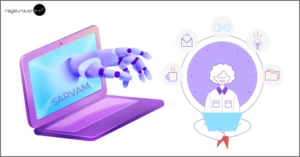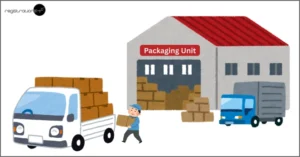What is CPCB EPR Registration for Industrial Sector

From setting clear standards for industries to making sure waste is managed responsibly, its work affects the air we breathe, the water we drink, and the land we live on, The Central Pollution Control Board (CPCB) plays a vital role in protecting the environment we all share.CPCB also works hand in hand with State Pollution Control Boards (SPCBs) and Pollution Control Committees (PCCs) to ensure environmental laws are followed across the country.
In recent years, it has stepped up even more—especially through initiatives like Extended Producer Responsibility (EPR), which holds producers and importers accountable for the waste their products create. By doing so, CPCB is not just enforcing rules—it’s helping build a cleaner, healthier future for all of us.
This article explains what CPCB EPR registration entails, its significance for industries, and the steps involved in compliance.
What is CPCB EPR Registration?
If you’re a producer, importer, or brand owner dealing with plastics, electronics, batteries, or hazardous materials, CPCB EPR Registration is something you can’t afford to ignore. This mandatory process, governed by the Central Pollution Control Board (CPCB), ensures that you’re taking responsibility for what happens to your products—even after they’ve been sold and used.
This concept is called Extended Producer Responsibility (EPR). In simple terms, it means that instead of leaving waste management to the government, you—the producer—are accountable for your product’s environmental impact from start to finish. It’s a powerful step toward reducing pollution and building a more sustainable future, and registering with CPCB shows that you’re serious about doing your part.
Why is CPCB EPR Registration Important for the Industrial Sector?
1. It Keeps You Legally Safe
EPR registration is required by law for businesses that generate waste. Ignoring it can lead to serious consequences, including hefty fines, suspension of licenses, or even damage to your company’s reputation. Staying compliant not only keeps your business safe—it builds trust too.
2. It Protects the Environment
EPR pushes industries to take responsibility for the waste they create. That means collecting, recycling, and safely disposing of it after use. This helps reduce pollution and saves valuable natural resources.
3. It Encourages Smarter Business Practices
When you follow EPR rules, you’re also investing in sustainability. You’re encouraged to design products that are easier to recycle and create less harm to the planet. It’s a big step toward a circular economy where waste becomes a resource, not a problem.
4. It Strengthens Your Brand
Today’s customers and investors care about the environment. By showing your commitment to responsible waste management, you position your brand as ethical, modern, and trustworthy. That kind of reputation isn’t just good for the planet—it’s good for business too.
Smoothen Your CPCB EPR Registration with These Pro Tips
here’s a simple, step-by-step guide to help you prepare and navigate the process smoothly.
1. Get Your Documents Ready
Before you start the application, gather all the required documents in advance. Make sure they are in PDF, JPG, or PNG format. Having everything ready will save you time and help you avoid errors during the upload process.
2. Create Your Login Credentials
To begin, you’ll need to register yourself on the official CPCB portal. This self-registration will generate your login ID and password, which you’ll use to access the application form.
3. Fill Out the Application Form
Once logged in, you’ll see separate application pages based on your role—Producer, Brand Owner, or Importer. Fill in all the details section by section and upload the required documents carefully. Take your time to ensure accuracy.
4. Pay the Application Fee
After completing the form, you’ll need to pay the application fee online. The portal includes a secure payment gateway, so the process is quick and convenient.
5. How Your Application is Processed
If your business operates in just one or two states, your application will be sent to the respective State Pollution Control Board (SPCB) or Pollution Control Committee (PCC) for further processing. CPCB handles applications from businesses operating in multiple states.
6. Receiving Your EPR Certificate
The review and approval process usually takes about 15 days. If all your information and documents are valid, the CPCB/SPCB/PCC will issue your EPR certificate using a secure digital signature. However, submitting false information may result in your application being rejected.
Final Words
Double-check every detail before submitting your application. This simple step can make the entire process smoother and help you avoid unnecessary delays. If you’re unsure about anything, don’t hesitate to consult an expert or reach out to CPCB for clarification.
Still Confused ? For complete peace of mind, consider connecting with our professionals who specialize in EPR certification. They can guide you through documentation, registration, and compliance—saving you time and ensuring your application meets all requirements from the start. Contact Now!
Categories: Business
Tags:





